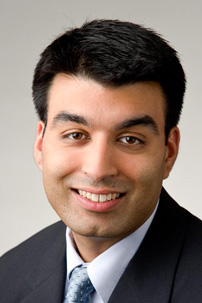 Neal Sikka, an emergency physician at George Washington University, launched a six-month study in May that aimed to determine how accurately ER doctors and physician assistants could diagnose wounds from images patients took with their own mobile phones. When people arrive at the hospital with cuts, skin infections, rashes or other flesh wounds, Sikka and his team of researchers recruit participants for the study by having them snap the photos of their wound and then filling out a medical history and symptoms survey. The images are then sent to a secure email and downloaded by clinicians onto a secure hard drive, according to a report in the Washington Post.
Neal Sikka, an emergency physician at George Washington University, launched a six-month study in May that aimed to determine how accurately ER doctors and physician assistants could diagnose wounds from images patients took with their own mobile phones. When people arrive at the hospital with cuts, skin infections, rashes or other flesh wounds, Sikka and his team of researchers recruit participants for the study by having them snap the photos of their wound and then filling out a medical history and symptoms survey. The images are then sent to a secure email and downloaded by clinicians onto a secure hard drive, according to a report in the Washington Post.
Clinicians read the survey and review the images on their PCs (so they can zoom into particular areas of the image) to make a diagnosis. Then, the clinicians meet with the patient and see if their "remote" diagnosis was accurate.
While the study is set to continue through October, Sikka is encouraged: About 90 percent of the diagnoses are accurate. Mobile phones with at least three megapixel cameras, autoflash and autofocus produce the best results (smartphones). Sikka estimates that in about half the instances where diagnoses were wrong -- about 5 percent of the time -- the quality of the image (and in effect the user's camera) was to blame.
"Our data suggests few people are worried about privacy and security," Sikka said. "A lot of people think it could save time, improve access, reduce cost and even improve communications with their doctor... We sort of live at the intersection of technology and medicine," Armstrong said. "It very well could change how doctors and patients interact."
A similar pilot was set to launch in France this month, as we reported earlier this summer: The program in Lower Normandy aims to equip about twenty nurses with 3G-enabled mobile phones loaded with special imaging software. The nurses will care for about 10 patients each and will facilitate remote consultations over the Internet with an expert nurse trained in wound care management. The expert nurses will check-in with dermatology specialists weekly via video conference.
Of course, there is already at least one company in the market wholly focused on using mobile phones to provide remote consultations for wound care management: The Wound Technology Network. WTN is using the HTC FUZE smartphones to enable its network of physicians to diagnose and prescribe treatments for patients with chronic wounds anytime, anywhere.
For more on the GWU pilot, read the WashPo article here (reg. req.)












